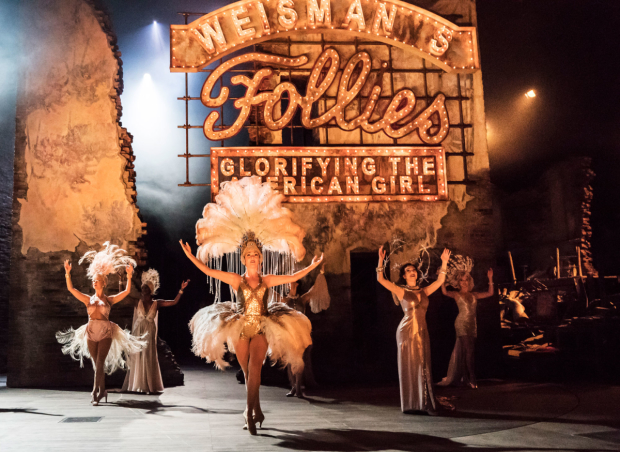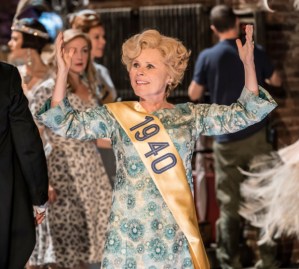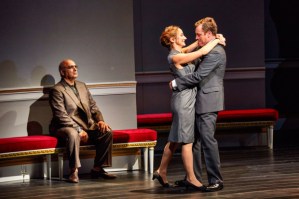Is theatre about theatre simply navel-gazing?
After a glut of plays about plays, Matt Trueman looks at why the stage looking back at itself can be a way of unpicking the world

© Johan Persson
Nothing sets the eyes rolling like theatre about theatre. It’s seen, in some quarters, as the ultimate self-indulgence: nothing but navel-gazing or a luvvies’ love-in. At a recent Critics’ Circle meeting, playwright James Graham said he swears off the stuff. It was one of his writing mantras: "Never make theatre about theatre."
He looks increasingly isolated in that stance. For the last month or so, the stage has been so full of itself it could have give Donald Trump a run for his money. Is that an issue – a sign of an art-form in love with its own image, fiddling with itself as the world falls to pieces? Or is it a mark of sharp-eyed self-awareness, an art-form that turns its limits to its advantage?
As a theatre critic, I’m caught between the two sides. It being my job to see the world through the stage, theatrical metaphors are literally my stock in trade, but I’m not sure audiences always care for such things. We want our theatre looking outwards not in. At its best, however, I’d argue that theatre straddles the two. It is, after all, the nature of theatre as a live, unstable event that enables it to reflect the world at large – live and unstable as it is.
Both shows could have got stuck up their own prosceniums, but they didn't
Take the two most direct shows-about-shows. First up, Follies – a stage full of old showgirls retreading the boards of their youth. Shortly afterwards, the Barbican hosted Ivo van Hove’s Bergman double-bill – two stories of actresses coming unstuck in themselves. Both shows could, so easily, have gotten stuck up their own prosceniums, but instead, both blossomed into profound meditations on the way of the world.
In both shows, the past and the present rub shoulders. Just as Follies‘ stars criss-cross with their former, younger selves, After the Rehearsal shows history repeating itself in the rehearsal room as a director seduces a mother and a daughter. In that, theatre’s inherent ephemerality seeps into the world. As live performances unfold, it seems to stress the way that nothing in life lasts.
Theatre is a medium that, like life itself, contains its own contradictions
In-built in that is a sense of duality – young and old, now and then, reality and memory. It courses all the way through both shows. Follies centres on couples and paths not taken. In Bergman’s Persona, two women become one. Both shows ripple with reflections and echoes. If theatre has a central quality, I’d say it is that – duality, doubleness. Everything onstage both is and is not. Actors are characters. Sets stand for somewhere. It’s a medium that, like life itself, contains its own contradictions.
Life is also full of performance. We mustn’t lose sight of that. Follies and the Bergmans are about the lies we tell, the fronts we put up and the ease with which we loose sight of ourselves. The same’s true of Florian Zeller’s slimline marital comedy The Lie. Watching performers playing people performing is exactly what gives that play its zing.
It’s by echoing theatre that Oslo unpicks the world
Ditto Oslo. JT Rogers' peace treaty thriller might not seem to say much about theatre, but it’s almost all about acting. One moment gives it away. An Israeli negotiator imitates Yasser Arafat, while another party plays a version of his opposite number Shimon Peres. In that, they enact a meeting that could never take place for real. In fact, so does the entire peace process. Diplomats speak on behalf of their leaders and, indeed, their nations. They stand in for something absent or imagined, just as actors do characters. The talks themselves take place in an empty space under a suspension of the usual hostilities, even disbelief, to imagine a new world into being. It’s by echoing theatre that Oslo unpicks the world. Theatre about theatre is about so much more.















